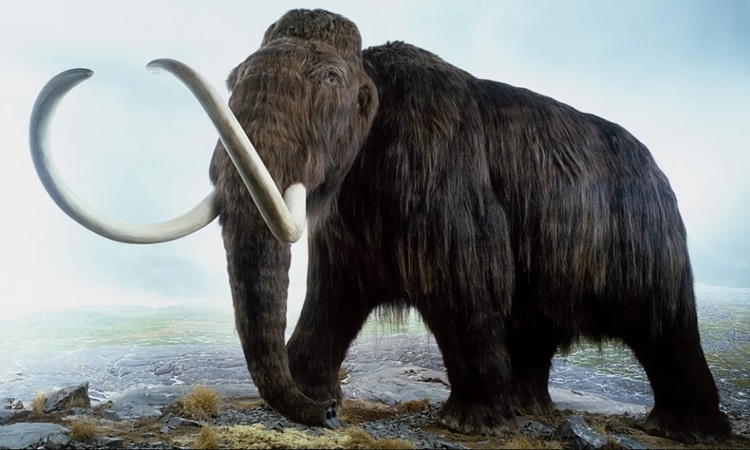Colossal Biosciences, an American company that aims to revive extinct species, expects woolly mammoth babies to be born within the next three years.
Woolly mammoths became largely extinct about 10,000 years ago. Image: Guardian
Colossal co-founder and CEO Ben Lamm said the first mammal will be born outside the womb, fully developing from an embryo to a healthy living individual in two years, from there paved the way for the birth of mammoths.
In an important development, the Colossal Foundation, a division of Colossal Biosciences focused on scientific solutions for conservation and biodiversity, announced on January 13 a donation of $1.5 million to the laboratory. by Dr. George Church of the Wyss Institute for Bioengineering at Harvard University. The collaboration between the Colossal Foundation and Church aims to explore the use of artificial wombs to ensure the future of species facing extinction.
Artificial wombs would provide a means to grow healthy embryos outside of a natural womb, allowing endangered animals to be born in a safe, controllable environment without the use of a surrogate. “Artificial wombs are both a technical marvel and essential for conservation,” said Matt James, executive director of the Colossal Foundation. “Because there is no need for a surrogate mother, this technology could speed up the recovery of threatened species and revitalize habitats.”
Colossal is not working on human applications of artificial wombs but acknowledges the technology’s potential in in vitro fertilization settings. The company plans to bring back some iconic extinct species such as the woolly mammoth, Tasmanian tiger and dodo bird. “The Tasmanian tiger project is ahead of schedule with major advances in genetic engineering and cell line preservation. The dodo bird project is more challenging because it needs to collect germ cells from pigeons first,” Lamm said. know.
Germ cells are specialized cells that give rise to reproductive cells in animals. According to Colossal, they can revive many more species before 2028 with current progress. They are also developing artificial wombs and collaborating with 17 universities globally. Despite some criticism, Colossal said the company received positive feedback for the project, which helps protect endangered species. Many animal species are disappearing due to human-related impacts such as overhunting and invasive species. For example, the woolly mammoth, the Tasmanian tiger and the dodo were all driven to extinction by human activity. The process of reintroducing extinct animals will begin with human care, then gradually move to larger ecological reserves and finally be released into the wild.

Profile – essie.yellow3355 | Tableau Public
essie – Google Docs
essieyellow's Profile – MyAnimeList.net
Spreaker
Business – Webflow HTML website template
essieyellow – Channel on Coub
essieyellow's Photo Galleries at pbase.com
essie yellow: on Zazzle
essie yellow | ArchDaily
IntenseDebate – essieyellow
essieyellow's profile
essie yellow | List.ly
essieyellow697 Online Radio by essie yellow | BlogTalkRadio
essieyellow – Qiita
Minds
essieyellow
500px
Spam Project
essieyellow’s profile • Letterboxd
essieyellow – Listen Free on Audiomack
essie yellow’s Biography | Muck Rack
HackerOne
essie yellow | taz.de
DDoS-Guard
Информация / Профиль essieyellow / iXBT Live
peatix.com/user/25295305/view
essieyellow – JSFiddle – Code Playground
HeyLink.me | essieyellow
essieyellow – DEV Community
essieyellow – Player | ESL Play